An Introduction By Kamal Das SummaryIntroductionIn 'An Introduction,' Das examines her nuanced feelings towards the system that governs both her existence and the daily affairs of many other suffering women. She also has firsthand knowledge of tyranny and freedom because she was a key player in the founding of the modern Indian feminist struggle. One of her greatest-known works is this particular one. She included it in Summary in Calcutta, her debut collection, which was released in 1965. The theme of the collection is love and the suffering that results from betrayal. 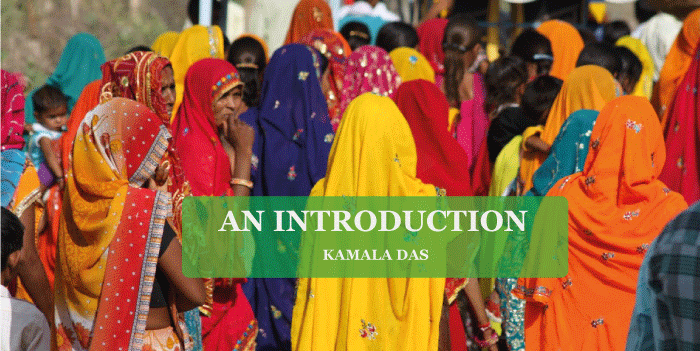
About The AuthorProminent Indian poet and writer Kamala Das (1934-2009) wrote in Malayalam, her native tongue, as well as English. She wrote under her pen name Madhavikutty when she wrote in Malayalam. She was born into a rather affluent family in Thrissur, Kerala. Her father, V.M. Nair, was the editor-in-chief of the journal Mathrubhumi and her mom, Nalapat Balamani Amma, had been a popular Malayali poet who had produced almost 20 collections of poetry. The Descendants (1967), The Old Playhouse and Other Poems (1973), and Summer in Calcutta (1965) are the three English-language poetry books by Kamala Das. As a syndicated columnist, she has also produced several essays, two novels, and collections of short tales. She has released 25 novels and poetry collections in all. 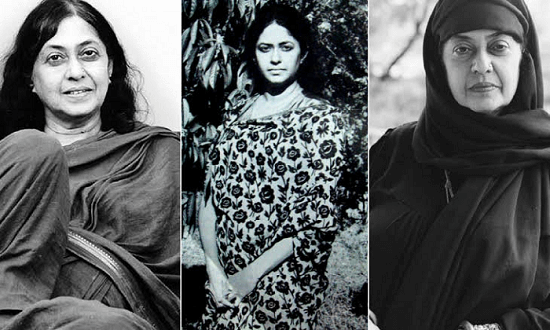
The Autobiography of My Story (1976), however, continues to be her best-known piece of writing. In 1984, Kamala Das received the Kendra Sahitya Akademi Award (English) and was also shortlisted for the Nobel Prize in Literature. On February 1st, 2018, Google created a doodle in her honor. Theme Of the PoemIn "An Introduction," Das delves deeply into the important issues of feminism/equal liberty, freedom, and marriage. This poem strongly supports women's right to free choice and makes a very obvious feminist argument. This applies to all facets of life, although the poet emphasizes marriage in particular. She demonstrates to the audience how her existence and the regulations she is required to abide by limit her independence by drawing comparisons and contrasts between the societal roles performed by men and women. Readers should be able to consider how, if any, the ideas Das is addressing pertain to their own lives as they read the poem. People could question why nothing makes sense and whether some unspoken advantage is making their lives better. 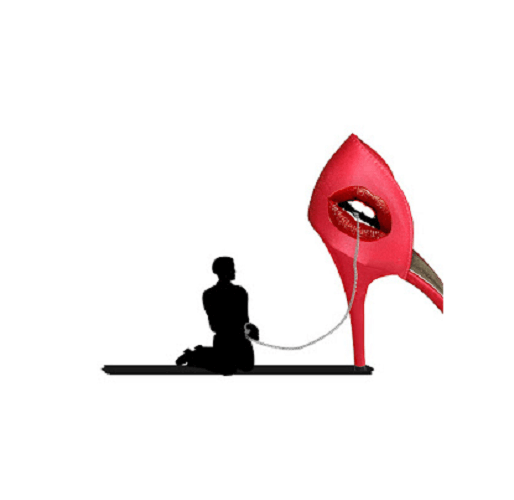
Summary Of the IntroductionI don't know politics but I know the names Of those in power, and can repeat them like Days of the week, or names of months, beginning with Nehru. The poet begins her explanation by stating that although she is unaware of politics, she is conscious of all the politicians in her country, from Nehru on up to the current crop. She has memorized the names of every politician, just like she knows the hours of the week and the identities of the months because India's politics have historically been held by fewer hands (of men). The lines illustrate how men have ruled the nation without granting women this right. Furthermore, there are fewer of them because democracy only exists in theory. In actuality, only a small group of individuals who consider themself to be the nation's permanent rulers continue to hold that position. I am Indian, very brown, born in Malabar, I speak three languages, write in Two, dream in one. The poet is now moving closer to her personal experience. She claims that, in contrast to the British, she was an Indian and brown. She is a Malabar native. She is fluent in three languages, writes in two, and uses a universal language in one of her dreams. She expresses her Indianness in these ways. 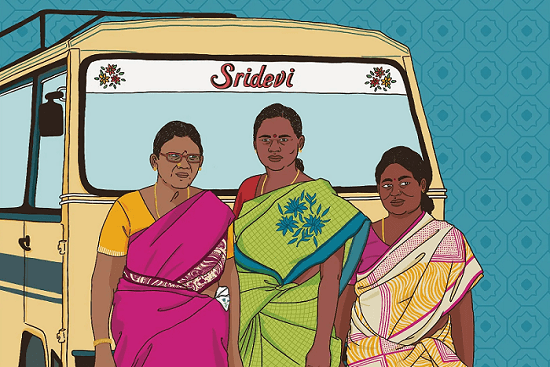
She can write in two languages?possibly English plus her native tongue?and speaks three languages, like the majority of Indians. She claims that she only thinks of one because everyone shares the dream world. No of their gender, everyone in our world speaks a single language. Don't write in English, they said, English is Not your mother tongue. Why not leave Me alone, critics, friends, visiting cousins, Every one of you? Why not let me speak in Any language I like? She writes in English because she is well-versed in the language. However, her friends, family, and critics disapprove of this practice of hers. Since they all believe that English is a colonial language, they all criticize her for composing in it. She queries their motives for their criticism. why she isn't allowed to write in any language she chooses? She reveals in these remarks the envious character of her close friends and family members who can't stand her talent. They criticize her because of this. They try to convince her fact the dialect she writes in is the tongue of colonists and that she should refrain from using it, although there is no logical justification for such prohibitions. She does, however, inquire as to how a language may be claimed by a specific group of people. She shouldn't be prevented from utilizing it because it belongs to everyone who uses it. The language I speak, Becomes mine, its distortions, its queernesses All mine, mine alone. It is half English, half Indian, funny perhaps, but it is honest, It is as human as I am human, don't Do you see? Her writing is written in her language, complete with all of its quirks and flaws. Although the language is not entirely English, she still believes everything to be honest since, like her, it is imperfect, which is completely acceptable. She demonstrates her title of the English language in these sentences, as well as her freedom to use it. She is flawed, yet this is what makes her human. Therefore, she shouldn't be reprimanded for her errors or shortcomings. Despite the reality that everyone in humanity is flawed, she queries why society overlooks the errors or even disasters of men and criticizes the errors of women. It voices my joys, my longings, my Hopes, and it is useful to me as cawing Is to crows or roaring to the lions, it Is human speech, the speech of the mind that is Here and not there, a mind that sees and hears and Is aware. Not the deaf, blind speech Of trees in storms or monsoon clouds or rain or the Incoherent mutterings of the blazing Funeral pyre. 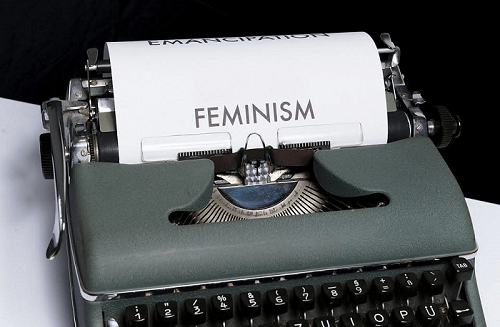
The words convey her happiness, sorrow, and hopes. For him, it is an essential component of her expression, much of what cawing means to crows and shouting is to lions. She continues by saying that what she says (in English) is human speech that brains can understand rather than unusual or bizarre sounds like the voices of dead people, trees in storms, monsoon clouds, or rain. I was a child, and later they Told me I grew, for I became tall, my limbs Swelled and one or two places sprouted hair. When I asked for love, not knowing what else to ask For, he drew a youth of sixteen into the Bedroom and closed the door She makes preparations for marriage. She was a child, even if her body size increased and she approached puberty, her soul was still immature. She pleaded for love when yet a child (after marriage). But on the bed, her husband satisfied his lust. In this poem, the poet attempts to tell the narrative about every woman in her nation's history in addition to describing her own married life. Her pains and grievances are shared by all the women in her nation. In her country, young women are compelled to wed elderly men against their will. They fail to acknowledge their adulthood because they were just teenagers when they were married. They must acknowledge that as their physical parts, especially their genitalia, mature, they have entered into a nuptial alliance and must embrace this. After getting married, the girl wants her spouse to be sympathetic and adore her. Instead, she is forced to undergo sex-related sufferings that she isn't willing to experience after being pulled to bed. He did not beat me But my sad woman's body felt so beaten. The weight of my breasts and womb crushed me. I shrank Pitifully. She claims that despite not having received physical abuse from him, her feminine body felt bruised and abused, and as a result, she grew weary of it. She perceived his genitalia as some weight that had weighed her down. She began to despise her female body since it had caused her so much suffering. Then ... I wore a shirt and my My Brother's trousers cut my hair short and ignored My womanliness. Dress in sarees, be the girl Be wife, they said. Be an embroiderer, be a cook, Be a quarreller with servants. Fit in. Oh, Belong, cried the categorizers. Don't sit On walls or peep in through our lace-draped windows. Be Amy, or be Kamala. Or, better Still, be Madhavikutty. It is time to Choose a name, a role. Don't play pretend games. Don't play at schizophrenia or be a Nympho. Don't cry embarrassingly loud when Jilted in love ... She tried to dress like a man to transform into a tomboy to escape its weight. But her in-laws were not in charge. They began making fun of her. She was ordered to wear sarees, act as a girl, a wife, an embroiderer, and a cook, and argue with servants, among other things. She was urged not to conceal who she was. Even her in-laws gave her the order to be quiet and put up with her unfulfilled love. The lines reveal a woman's state while she is living with her in-laws. She is compelled to abandon her candour and adopt the traits of a daughter-in-law. She feels compelled to comply with all her in-laws ask of her. Even if she is unwilling to, she must complete all the tasks. Yet she continues to receive insults, reprimands, and taunts. If she is unhappy in her marriage, she is even urged not to display her sorrow. I met a man and loved him. Call He not by any name, he is every man Who wants? a woman, just as I am every The woman who seeks love. In him . . . the hungry haste Of rivers, in me . . . the oceans' tireless Waiting. Who are you, I ask everyone, The answer is, it is I. Anywhere and, Everywhere, I see the one who calls himself I In this world, he is tightly packed like the Sword in its sheath. It is I who drink lonely Drinks at twelve, midnight, in hotels of strange towns, It is I who laugh, it is I who makes love And then, feel shame, it is I who lie dying With a rattle in my throat. She encounters someone (whose name she omits). She claims that the man represents every man who craves a woman as much as a woman craves a man's love. He responds with "I" when she asks who he is. He has the freedom to act however he pleases thanks to this "I" or "male ego." He can laugh, drink, and fulfil his lust at midnight. However, he feels humiliated upon losing a woman as a result of his failings, and this ego, or "I," likewise passes away with the person, making his demise identical to that of the lady. I am a sinner, I am a saint. I am the beloved and the Betrayed. I have no joys that are not yours, no Aches that are not yours. I too call myself I. She can therefore, like him, claim the pronoun "I" for herself. She experiences sin and virtue, love and betrayal, just like men do. Her pleasures and sufferings are the same as those of men. She, therefore, elevates herself to the status of "I." ConclusionThe poem's main theme is quite obvious. The author explains how he thinks learners ought to engage with poetry before describing how they do it. His focus is on poems as an artwork of art rather than anything which has to be "figured out" or defined. In "An Introduction," Das delves deeply into the important issues of feminism/equal liberties, freedom, and marriage. This poem strongly supports women's right to free choice and makes a very obvious feminist argument. This applies to all facets of life, although the poet emphasizes marriage in particular. |
 For Videos Join Our Youtube Channel: Join Now
For Videos Join Our Youtube Channel: Join Now
Feedback
- Send your Feedback to [email protected]
Help Others, Please Share









